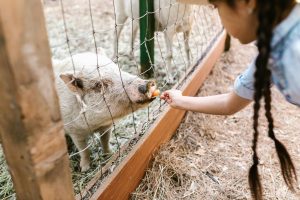Mallory Harrington on November 18, 2024
- Marianne Cooper (Senior Research Scholar at Stanford University’s VMware Women’s Leadership Innovation Lab) and Priya Fielding-Singh (Senior Manager of Research and Education at LeanIn.org) wrote an article for the Harvard Business Review on how gender equality in the workplace has stalled and is not inevitable. Data from the 2024 Women in the Workplace report by LeanIn.org and McKinsey & Company revealed that last year the gender wage gap widened for the first time in two decades. Cooper and Fielding-Singh describe several barriers to workplace equity for women, including getting stuck in entry level positions, sexual harassment, ageism, and housework and childcare responsibilities.
- The San Diego Voice & Viewpoint ran a story on the experiences of agricultural workers in California (about 75% of whom are undocumented migrants) during the election year. Manuel Ortiz Escámez (Audio-Visual Sociologist and co-founder of Peninsula 360) commented on the impact of immigration as an election issue. “People are very afraid,” he said. “Power in politics needs to invent a physically and morally repugnant enemy who wants to take what’s yours because the feeling of emergency creates unity and the need of a savior. That’s why migrants have always been the ideal enemy of some U.S. political campaigns … and the data shows that it works.”
- In an interview with El País, Ruha Benjamin (Professor of African American Studies at Princeton University) discussed the hidden power structures behind technology and how imagination can challenge established systems. “Technological innovation is not the same as social progress,” Benjamin explained. “A lot of innovation can simply reinforce old ways of thinking and hierarchies. Technological advancement often hides harm and violence.”
- The New York Times ran a story on the unclear expectations on caregiving for older, unmarried couples and their families. Deborah Carr (Professor of Sociology at Boston University) commented that the trend of increasing (unmarried) cohabitation among older couples reflects an attitudinal change: “The old stigma around ‘living in sin’ has pretty much disappeared.” Susan Brown (Professor of Sociology at Bowling Green State University) explained that cohabitation allows older couples to avoid some of the constraints and expectations of marriage. Brown described that many women “aren’t interested in the gendered bargain that marriage entails, the caregiving role,” and women who have already been a caretaker to a previous spouse often “bring a been there, done that, attitude to remarriage.”
- Ireland’s Science Week 2024 focused on environmental regeneration. Silicon Republic ran a story featuring Áine Macken-Walsh (Senior Research Officer at Teagasc’s Rural Economy and Development Programme), who studies the values, knowledge, and practices of farmers and other agricultural actors. Macken-Walsh emphasized that members of the public should be seen as partners in STEM, adding value to science and translating it into real-world contexts. “Regeneration of family farming, for instance, requires the maintenance and preservation of some existing farming practices and land resources, while also innovating to meet contemporary needs, for example gender equality [and] environmental protection,” she explains.






Comments 4
clubpilates — December 3, 2024
Thank you for sharing this insightful post! Your detailed explanation and practical tips are incredibly helpful. clubpilates
Kenny — December 9, 2024
Hello,
Thanks for this article.Prosperidad Social
Nicolas — February 10, 2025
The members of the public should be seen as partners in STEM, adding value to science and translating it into real-world contexts. “Regeneration of family farming, for instance, requires the maintenance and preservation of some existing NJ State DMV
Stephaine Soens — November 6, 2025
SASSA is a cornerstone of South Africa’s social protection system, providing essential financial support to the country’s most vulnerable populations. Through its various grants, the agency alleviates the burdens of poverty,SASSA Child promotes social stability, and empowers citizens to meet basic living standards.